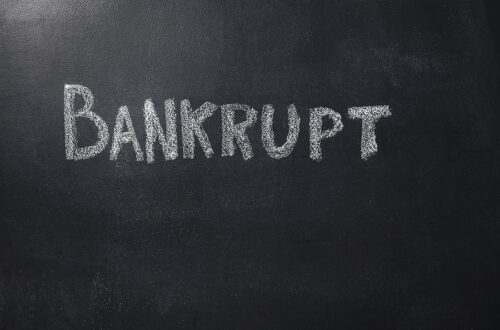According to the New York Times, JPMorgan Chase and Bank of America will remove all Chapter 7 bankruptcy discharged credit card debts from consumer credit reports in the next 3 months. In a written statement coming close to finalization, Citigroup will be doing the same. The nation’s largest banks are ready to put an end to zombie debts.
Pending litigation accuses these banks of attempting to receive payment by leaving these discharged debts on credit reports. Synchrony Financial has also been accused of this as well. Financial institutions are required by federal law to cease reporting defaulted credit card accounts, once a bankruptcy has discharged them.
Ira Rheingold, executive director of the National Association of Consumer Advocates, said, “The bankruptcy then indicates that (it was) taken care of. The notion that it should stay on your credit report is inaccurate and it does damage to consumers.” If a bankruptcy and the eliminated credit card debt appear together on a consumer’s credit report, the consumer is penalized twice, making it harder to gain future financing. It can also harm potential future job opportunities as well, since certain employers will not consider prospects with delinquent accounts.
JPMorgan Chase would not report, comment or confirm to the Times why these discharged debts might have been reported. Synchrony Financial would not respond either, but they did agree to offer similar relief for consumers. According to an email statement, Bank of America feels that their reporting on sold credit card accounts is accurate. Spokeswoman Betty Riess said, “However, given the issues raised by the court, we have made the decision to delete credit reporting for the sold credit card accounts.”
According to the Times, if these agreements follow through, more than a million Americans will be helped by the banks’ decisions.
If in the event a discharged bankruptcy debt still shows up on your credit report, it is advised that you do not pay it since you no longer owe the debt. It is suggested that you file a dispute with the credit bureaus (Experian, Equifax and TransUnion) instead. By asking to have it removed from your reports, an inquiry will be launched. It is also helpful to provide the credit bureaus with as much information as possible to prove that the debt is gone—indeed dead. Also attach your bankruptcy discharge notice, which lists the debt on it. According to Rheingold, “If the bureaus don’t fix it, you have them on a fair credit reporting violation.”
If you are in a financial crisis and are considering filing bankruptcy, contact an experienced Miami bankruptcy attorney who can advise you of all of your options. As an experienced CPA as well as a proven bankruptcy lawyer, Timothy Kingcade knows how to help clients take full advantage of the bankruptcy laws to protect their assets and get successful results. Since 1996 Kingcade & Garcia, P.A. has been helping people from all walks of life build a better tomorrow. Our attorneys’ help thousands of people every year take advantage of their rights under bankruptcy protection to restart, rebuild and recover. The day you hire our firm, we will contact your creditors to stop the harassment. You can also find useful consumer information on the Kingcade & Garcia website at www.miamibankruptcy.com.
Source: http://www.bankrate.com/financing/credit-cards/death-to-zombie-debts/


